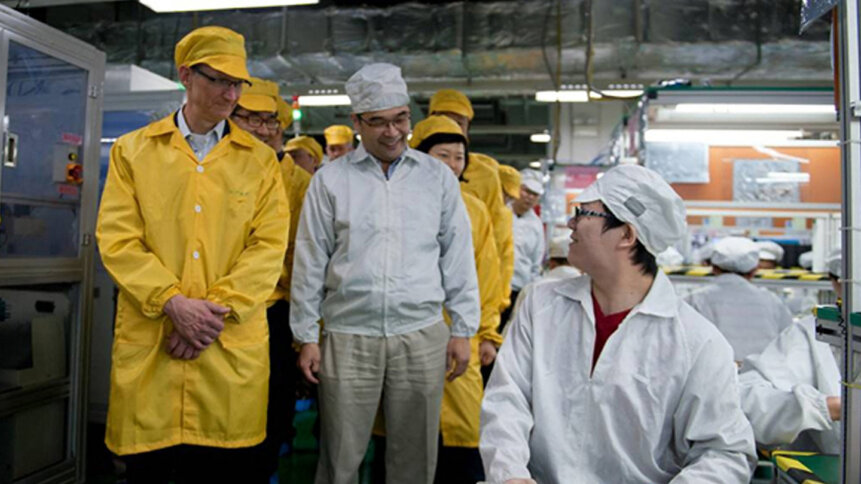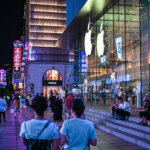China calls up veterans to make iPhones

When the Chinese government tells its citizens to do something, it’s rarely wise for the citizens to disobey. But when the instruction comes with the caveat that obedience might cost them their lives, you might expect the citizens to think twice. That’s the current situation in China, where the government is ‘soft ordering’ its military veterans to show up at the most productive iPhone factory in the world, in Zhengzhou, to make good a shortfall of iPhone 14 Pro and Pro Max models – despite the plant being regularly prone to Covid outbreaks.
The reason there’s s shortfall is that Covid-19 has not in any sense ‘gone away,’ despite a distinct weakening in the Western response to the virus. In China, there has been a hardline “zero Covid” policy for some time, which has made factory work both particularly difficult – when someone tests positive for the virus, it can empty whole processing floors, or even whole buildings – and unusually dangerous, as continued proximity to fellow workers can exacerbate cases unnecessarily.
Heavy bonuses
The Apple factory in Zhengzhou in particular has paid its workers increasingly large bonuses to stay and work on the Pro and Pro Max iPhone 14 models, reaching an additional US$55 per worker per day to try and cut the backlog in production. Sadly, that backlog now stretches into January, 2023 for Chinese iPhones out of Zhengzhou, which is traditionally responsible for delivering around 70% of the world’s iPhone models.
So, in a mind-boggling move, the Chinese government has sent out a call to retired military veterans to turn up at the factory in Zhengzhou and help out however they can.
The call actually came from a Veteran Affairs Bureau of the People’s Liberation Army in Zhengzhou – and (in a mark of the degree of technological uptake by older generations in China) it came in the form of an open letter posted to WeChat, the so-called “everything app” that is increasingly ubiquitous in the country.
Ongoing Communist command
The letter essentially abolished the notion of “retired” status, declaring that veterans were “always under the command of the Communist Party and should show up where there’s a need.”
It went on to instruct them to “answer the government’s call” and “take part in the resumption of production.”
It’s worth thinking about the perceived importance to the Chinese government of iPhone production that lies behind this extraordinary letter.
This is a Communist government – arguably, the leading Communist government in the world – instructing its military veterans (ie retired state soldiers) to volunteer their service not in the outright defense of the nation, but to make iPhones (by Apple, a US-based company), as part of their continuing commitment to the Communist Party.
It gets even more surreal when you realize that the Zhengzhou plant is technically owned by Foxconn, whose headquarters are in Taiwan, a country that regards itself as an independent state, but which the Chinese government regards as part of Chinese territory.
Bubblicious
In addition to all of this, conditions at the Zhengzhou plant are such that workers there have been in a Covid “bubble” since the beginning of 2022. That means staff there can work safely with one another – but not interact with people outside the bubble, including their family and friends. Anyone testing positive for Covid is sent to a quarantine center on site, rather than being sent home to self-isolate.
That policy hasn’t stopped the spread of the disease within the bubble – which is at least one reason why instructing veterans to go and work there has been met with significant criticism. There are of course also questions of whether the veterans have the resilience to stand making iPhones day in, day out, and questions over the ethics of essentially ordering veterans out of retirement to do manual labor in factories at all – at least outside of wartime.
The Zhengzhou factory is understood to have a 10,000 worker shortfall on its usual capacity of 300,000 staff. No-one is yet certain whether enough veterans will answer the call to materially help the iPhone productivity shortfall.
The importance of iPhones
Given that the plant last suffered a Covid outbreak as recently as October, which resulted in workers jumping the fences in an attempt to flee the factory’s bubble, it’s also by no means certain how many of the veterans who walk into the Zhengzhou plant will necessarily walk out again once the shortfall has been dealt with.
To get a Communist government to issue instructions to its military veterans to go and work in a factory producing consumer goods for sale, the importance of those goods must necessarily be extremely high in the esteem of that government. It would be easy to extrapolate from this move that the Chinese government is extremely nervous about the increasing moves by Apple and other Western companies to pull away from their ongoing relationships in China.
Those companies have been attempting to pull out of, or at least decrease their investment in, China following a year-long campaign by the US Biden-Harris administration to actively restrict sales of chips and equipment to China, in favor of boosting domestic manufacturing and use.
The ongoing – though denied – cold war between the US and China over high technology semiconductors, advanced chips, and cutting-edge consumer electronics has pushed the two countries into an ever more strained relationship, so China will want to make sure it pulls out every available stop to maintain as much Apple business as possible.
It remains to be seen whether calling in military veterans to correct a shortfall in production actually achieves that – especially as Apple will potentially have to deal with the optics of the move back home.











